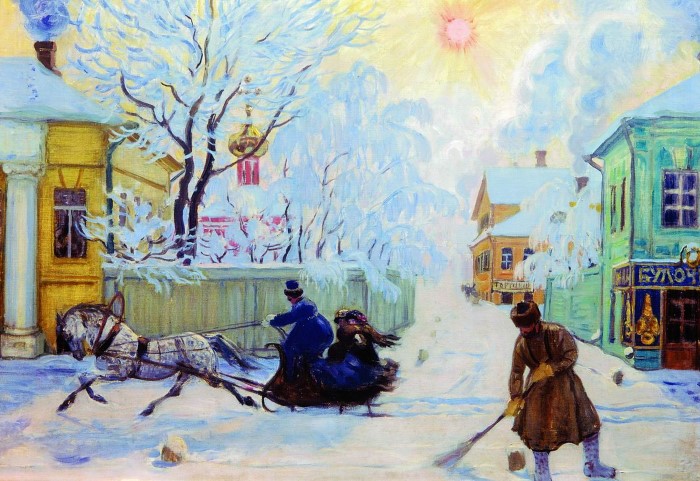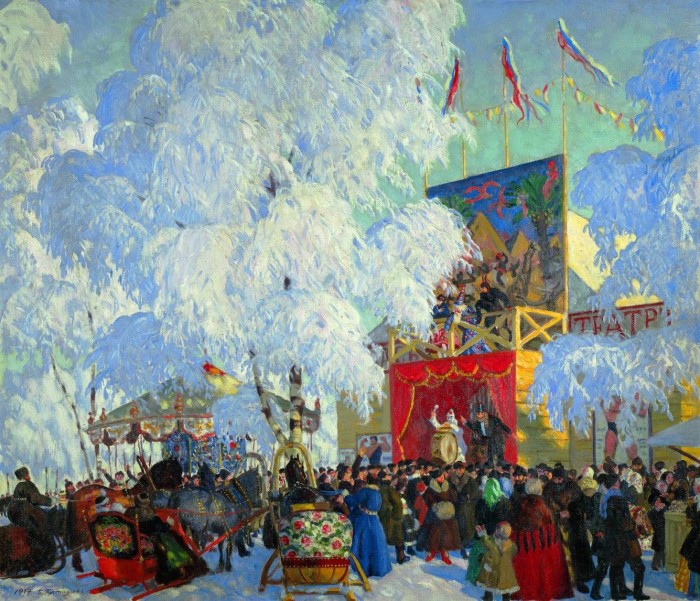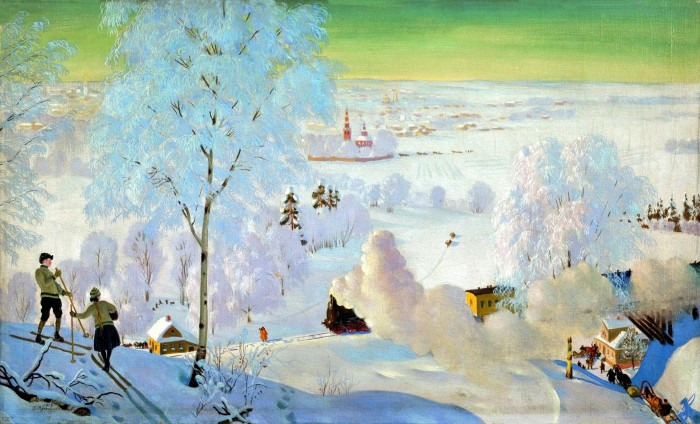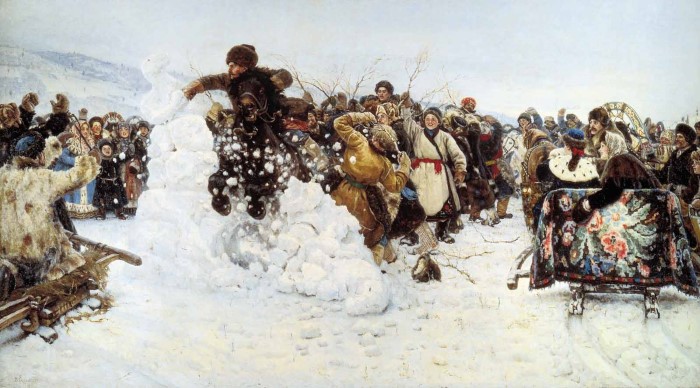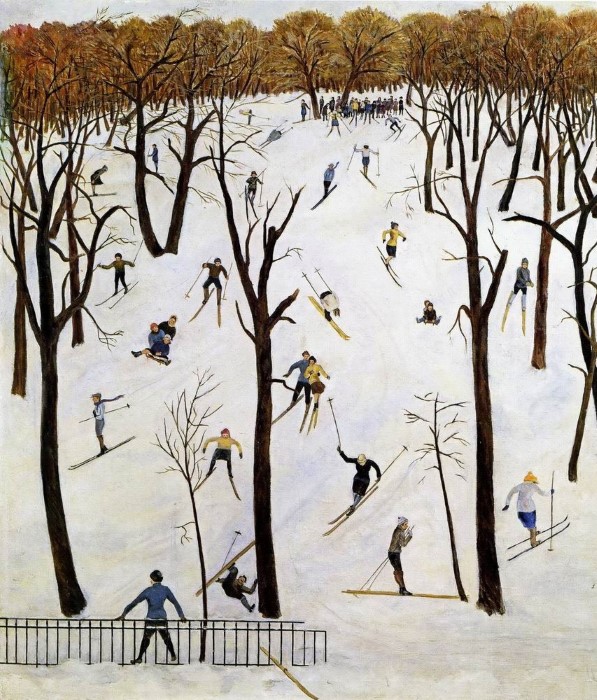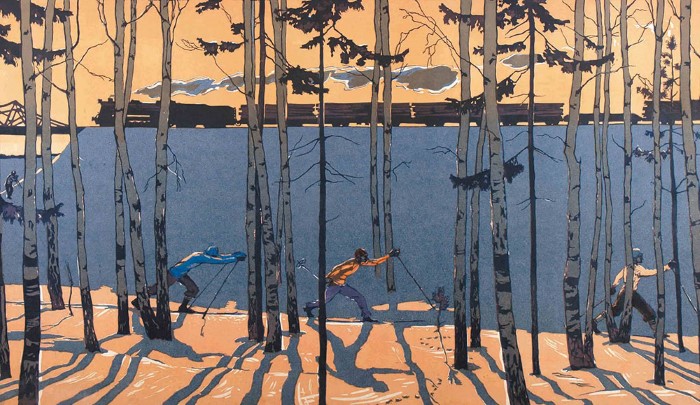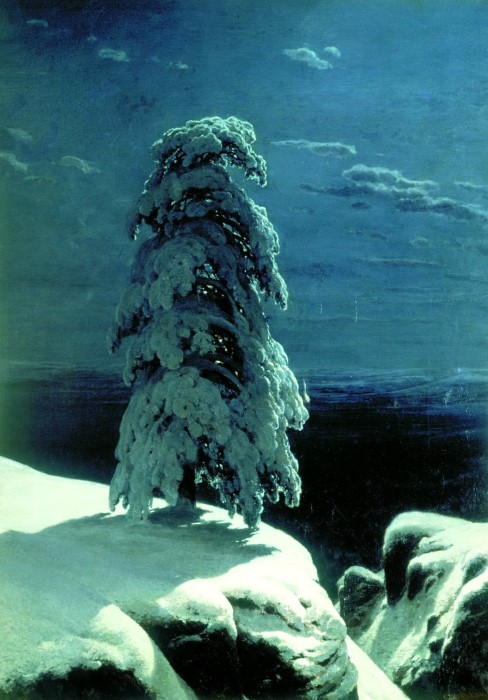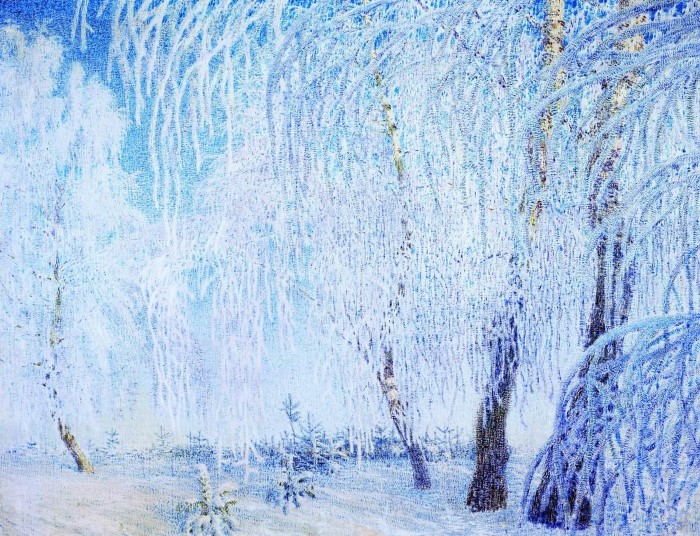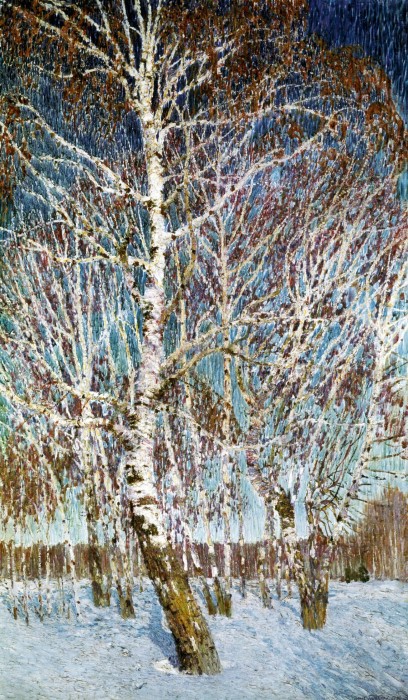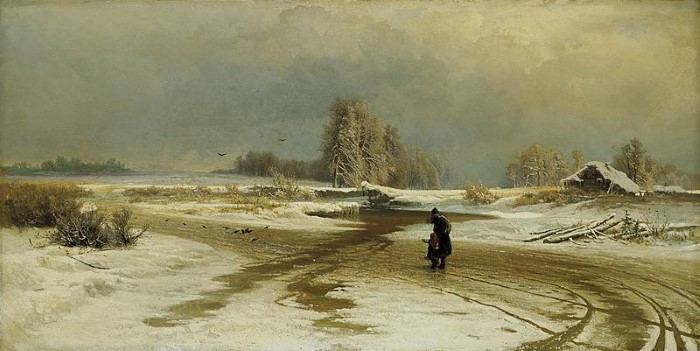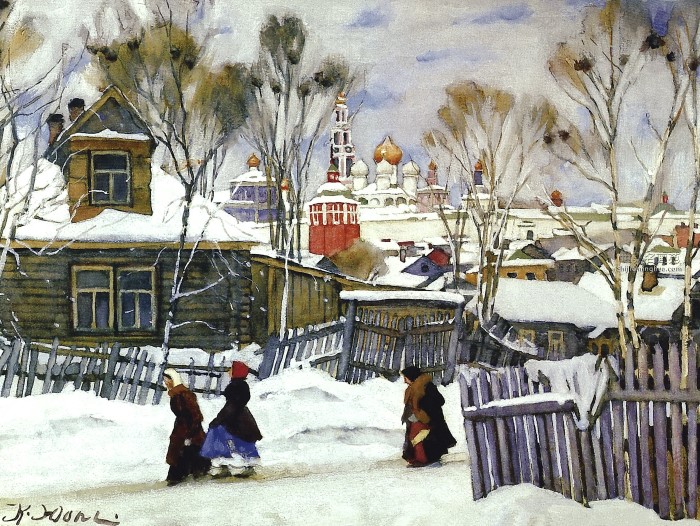Polina Skolkova
Winter with its crispy frost became a brand, a symbol of our country. “Russia? Yeah, it's cold there!” And indeed, what could be more beautiful than real Russian winter? Some people from big cities don't have a memory of a white snow. Some of them are wining about dirty streets and lack of sunny days, some of them pass all daytime in heated offices or flats. However, on weekend it's a real joy to go out to parks, on cross-country skiing, skating, and even ice hole swimming. It's a special pleasure to visit one of street fairs with all the entertainment involved, to drink hot Russian “sbiten” or herbal tea! And how about Maslenitsa? And what about Russian banya? It feels amazing to jump deep into the snow after hot sauna. Picturesque Russian villagers and provincial towns all whitened by ice and clear snow are so beautiful!..
We created Russian winter landscapes gallery for those who stay at home and those who live far from Russia.
Boris Pasternak, Winter Night
It snowed and snowed, the whole world over,
Snow swept the world from end to end.
A candle burned on the table;
A candle burned.
As during summer midges swarm
To beat their wings against a flame
Out in the yard the snowflakes swarmed
To beat against the window pane
The blizzard sculptured on the glass
Designs of arrows and of whorls.
A candle burned on the table;
A candle burned.
Distorted shadows fell
Upon the lighted ceiling:
Shadows of crossed arms, of crossed legs-
Of crossed destiny.
Two tiny shoes fell to the floor
And thudded.
A candle on a nightstand shed wax tears
Upon a dress.
All things vanished within
The snowy murk-white,hoary.
A candle burned on the table;
A candle burned.
A corner draft fluttered the flame
And the white fever of temptation
Upswept its angel wings that cast
A cruciform shadow
It snowed hard throughout the month
Of February, and almost constantly
A candle burned on the table;
A candle burned.
Happy Winter
Of course we're talking about Boris Kustodiev. Running on slays, Maslenitsa celebrations, carousels, balagans – his artworks are full of light and color.
Boris Kustodiev. Frosty Morning, 1913
His Maslenitsa paintings are especially vivid and original. Accordion playing, ornate wagons, girls with flashing cheeks; colorful shawls, dances and playing harmonica; sledding, gingerbread houses and churches... Elated, crispy white winter. Take a deep breath – and truly feel the icy breath of Russian winter.
Boris Kustodiev. Balagans, 1917
Boris Kustodiev. Skiers, 1919
The Capture of Snow Town by Vasily Surikov is dedicated to Maslenitsa Carnival Celebrations.
The Gorodki is an ancient Russian folk sport game, similar in concept to bowling and somewhat to horseshoes. The winter version of the game intends using snow with a water poured over. Men and young guys participate in the game. Horse riders were attacking while other warriors had to defeat with rackets, forks, cannons, snowballs – whatever was available. First who hit the gates was deemed the winner. Exactly this moment is captured on this artwork. Fortunately, traditional winter games are not forgotten in Russia yet.
Vasily Surikov, The Capture of Snow Town, 1889
Daniil Kharms
I walked in winter through a quagmire,
Galoshes,
Hat and
Specs I wore.
And someone swept along the river
On clinking metal hooks,
What’s more.
I ran to river all the faster,
Towards the woods he running veered,
Two planks attached to feet – disaster –
He sat
And, bouncing,
Disappeared.
And long I stood beside the river,
And long I thought, while holding specs:
“Those planks were very strange;
I cannot
Explain or rearrange
Those hooks!
Sergey Luchishkin. Skiers, 1926
Viktor Popkov. Free Day, 1958
Enigmatic Winter
Winter may become poetic and mysterious. It is so fascinating. Soft moonlight , cosmic gravitation...
Ivan Shishkin, In the Wild North, 1891
Arkhip Kuindzhi, Spots of moonlight in the forest, 1898–1908
Azure Winter
It is the winter of Igor Grabar. Beautiful tall birches, covered by frosting lace, with blinding azure of the winter sky on background. Clear impressionistic mood, the pure joy. Fleeting fairytale moments, masterfully captured by the great artist.
Igor Grabar. Frosting, 1905
Igor Grabar. February Azure, 1904
The Thaw
Russian landscape can show another picture as well: snowy fields, lopsided houses, black birds, muddy road, total stillness.
Aleksei Savrasov. Winter, beginning of 1870s
Fedor Vasilev, The Thaw, 1871
Village Winter, City Winter
Russian landscape started with typical picture of village in winter. Only later Russian painters reestimated winter delight of a Russian town.
Nikifor Krulov, Russian Winter, 1827
Isaak Levitan, Village, Winter, 1877
Konstantin Yuon, Troitsky Cathederal, 1916
Natalya Goncharova, Moscow Winter, 1900s
Winter in Forest
Possibly, the favorite topic of Russian landscape painters is a winter forest. Tranquillity, clinking silence. Soft light, blurry shadows, mysterious roads. Peace and calm.
Fyodor Tyutchev
The forest is entranced
by Winter the Magician.
Under velvet snow
it's mute, immobile, glistening
wondrously with life,
standing enchanted,
neither dead nor alive,
entranced by a magic dream,
entirely covered, fettered
by light links of snow.
Should winter's sun cast a sudden flare
glancing across its summits,
not a thing will shiver in it.
It will sparkle and flame
and be blindingly fair!

